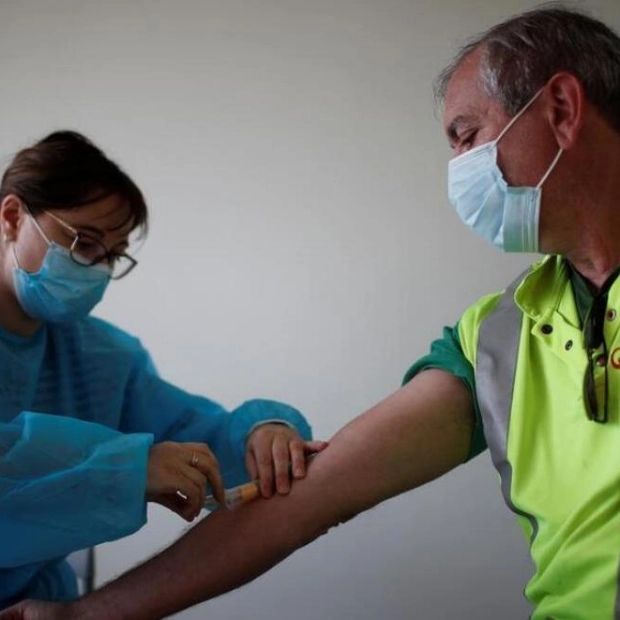President Joe Biden has granted clemency to approximately 1,500 individuals who were released from prison and placed on home confinement during the COVID-19 pandemic, along with pardoning 39 Americans convicted of nonviolent crimes. This marks the largest single-day act of clemency in modern history.
The commutations announced on Thursday apply to those who have completed at least one year of home confinement after their release. Prisons were particularly vulnerable to the spread of the virus, and some inmates were released to mitigate this risk. At one point, one in five prisoners had COVID-19, according to data from The Associated Press.
Biden stated that he would take further steps in the coming weeks and continue to review clemency petitions. The second-largest single-day act of clemency was by Barack Obama, who pardoned 330 individuals shortly before leaving office in 2017.
"America was built on the promise of possibility and second chances," Biden said in a statement. "As president, I have the privilege of extending mercy to those who have shown remorse and rehabilitation, restoring opportunities for Americans to contribute to their communities and addressing sentencing disparities for nonviolent offenders, particularly those convicted of drug offenses."
This action follows a broader pardon for his son, Hunter, who faced prosecution for gun and tax crimes. Advocacy groups are pressuring Biden to pardon a wider range of individuals, including those on federal death row, before the Trump administration takes over in January.
Biden is also considering preemptive pardons for those who investigated Trump's efforts to overturn the 2020 election results and may face retribution when Trump returns to office. Those pardoned on Thursday were convicted of nonviolent crimes such as drug offenses and have since turned their lives around, according to White House lawyers.
Among those pardoned are a woman who led emergency response teams during natural disasters, a church deacon who works as an addiction and youth counselor, a doctoral student in molecular biosciences, and a decorated military veteran. Biden has previously issued 122 commutations and 21 pardons, including those for marijuana use and possession on federal lands and in the District of Columbia.
Rep. Jim McGovern and 34 other lawmakers are urging Biden to pardon environmental and human rights lawyer Steven Donziger, who was imprisoned or under house arrest for three years due to a contempt of court charge related to his work against Chevron. Others are advocating for Biden to commute the sentences of federal death row prisoners, as Attorney General Merrick Garland has paused federal executions.
Biden had pledged to end the death penalty during his 2020 campaign but did not do so. With Trump's return, executions are likely to resume. Trump oversaw an unprecedented number of federal executions during his first term, including during the pandemic.
More pardons are expected before Biden leaves office on January 20, but it remains unclear whether he will take action to protect against possible prosecution by Trump. The president has been considering this issue for up to six months, but concerns about setting a precedent have delayed any decision.
Those who receive pardons must accept them. New California Sen. Adam Schiff, who led the congressional committee investigating the January 6 insurrection, believes such a pardon would be "unnecessary." A president has the power to pardon, which relieves guilt and punishment, or commute a sentence, which reduces or eliminates punishment without exonerating the wrongdoing. It is customary for a president to use this power at the end of their term.
Before pardoning his son, Biden had repeatedly pledged not to do so. He explained his reversal by stating that the prosecution had been tainted by politics. This decision prompted further pressure on the administration to use clemency for ordinary Americans, though it was not well-received; only about 20% of Americans approved, according to an AP-NORC poll.
Source link: https://nypost.com






